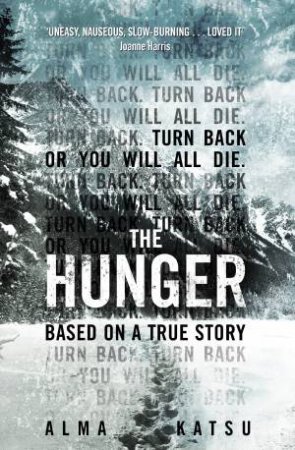


Harry is hard to forget as he reels in the grip of a “revolting sense of pure grief”, which “swept through him like an attack of nausea, an absolute knowledge that he was all alone and life was meaningless and devoid of joy”. Swanson shifts his narrative between past misdemeanours and present ones, and between Harry and Alice, in the process conjuring up one of the most believable, unsettling murderers I’ve encountered for some time.

She breaks him out of the home to take him on a disturbing, creepy road trip in the hope it will jog his memory Harry – beautifully drawn as an adolescent on the brink of adulthood – soon discovers that his father’s death on a cliff path was not an accident. He returns home to his stepmother Alice, his father’s young second wife whom Harry barely knows and for whom he now develops disturbingly sexual feelings. Harry has just graduated from college when he learns that his father, a book dealer with a rather lovely penchant for making lists (“five best campus crime novels”, etc), has unexpectedly died. Peter Swanson’s All the Beautiful Lies (Faber & Faber, £12.99) is a slice of classic crime, a dark, atmospheric read that takes place on the coast of Maine. This nerve-jangling, persuasive story of survival and desperation stands alongside The Terror, Dan Simmons’s excellent supernatural take on Sir John Franklin’s doomed 1845 expedition to find the north-west passage. When Donner makes a bad mistake, choosing the untested, apparently shorter route through the virtually impassable, tree-choked hills, and the children start disappearing, the survivors start to realise it isn’t only the elements that are against them. “A young boy might be swallowed up in all this vastness, in the unrelenting space that stretched in all directions, in the horizons that yoked even the sun down to heel.”Īs the wagons, filled with old people, children and babies, roll onwards, Katsu imparts a sense of urgency: winter is coming, mountains lie ahead, and the food is running out. Her descriptions of the land are movingly beautiful, but there is danger even here, as we learn that a child has vanished. She then leaps back in time, as the long wagon train makes its way across the vast empty spaces of the American prairie. They find nothing but “a scattering of teeth”, and “what looked like a human vertebra, cleaned of skin”. Katsu opens her novel as a rescue team arrive at an abandoned cabin the summer after George Donner’s party set off. In Alma Katsu’s The Hunger (Bantam, £14.99), a hint of the supernatural is added to the proceedings to create an absorbing, menacing thriller that had me digging into the history behind this tale as soon as I’d read the last page.

T he true-life story of the Donner party, American pioneers who set out for California in 1846 but took a poorly advised shortcut through the mountains and ended up snowed in for the winter, with survivors reportedly resorting to cannibalism, is terrifying enough on its own.


 0 kommentar(er)
0 kommentar(er)
